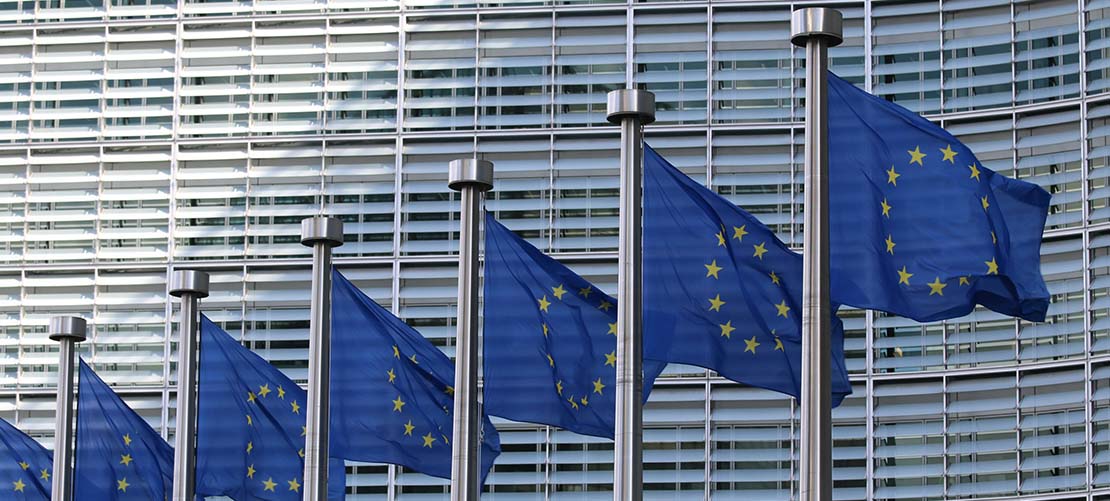Commercial and tech update - March 2019

Welcome to this month's edition of our commercial and tech update covering the rather busy month for the European Commission, with two high-profile significant fines, as well as the High Court exploring the extent to which Brexit can frustrate a contract, as well as Parliament.
The frustration of Brexit
The High Court has found that the European Medicines Agency (the "EMA") cannot rely on Brexit in order to get out of its 25-year lease of office space in Canary Wharf. Following the UK's decision to leave the EU, the EMA's headquarters were relocated to Amsterdam. Under the terms of the lease, neither party had a right to end the lease before the contractual term expires in 2039; however, the EMA argued that the UK's exit from the EU was an unforeseen event that "frustrated" the lease.
The judge ruled that Brexit did not constitute an event of frustration, and that there were provisions in the lease to mitigate a situation in which the EMA had to leave the premises; for example, the ability to sublet or assign the premises. The EMA therefore remains bound by its obligations under the lease.
Much has been made of the fact that this ruling provides certainty as to the impact of Brexit on contracts. However, had the agreement contained a force majeure or material adverse change clause (both common to commercial contracts) that referred to the consequences of Brexit, would the decision have been the same?
Force majeure clauses relieve or suspend one or both parties from the performance of a contract in the event of circumstances that are outside a party's control. Whilst a standard force majeure clause might not convince a court to absolve a party of its obligations due to Brexit, a clause that is drafted to include difficulties symptomatic of Brexit such as serious delays in a supply chain, might make a court more receptive to this argument.
A material adverse change clause attempts to capture unpredictable and unforeseen circumstances and can also absolve a party from fulfilling its contractual obligations. In the Canary Wharf case, it was held that the EMA did suffer a material adverse change as a result of Brexit. Whilst the EMA was not allowed to rely on frustration, the judge's findings implied that material adverse change clauses could be used by parties to mitigate losses that arise as a result of Brexit.
The EMA has been granted permission to appeal the decision, so watch this space
Nike fined for restrictive distribution practices
The European Commission has fined Nike €12.5 million for banning traders from selling licensed merchandise to other countries within the EEA. The case focused on Nike's role as a licensor for manufacturing and distributing licensed merchandise featuring the brands of some of Europe's best-known football clubs and federations and not its own trademarks. Nike entered into non-exclusive distribution agreements with third parties to allow such third parties to manufacture and distribute the licensed products.
In June 2017, the Commission opened an antitrust investigation into certain licensing and distribution practices of Nike to assess whether it illegally restricted traders from selling licensed merchandise cross-border and online within the EU Single Market. The Commission's investigation has found that Nike's non-exclusive licensing and distribution agreements breached EU competition rules on the basis that:
- Nike imposed a number of direct measures restricting out-of-territory sales by licensees, such as clauses explicitly prohibiting these sales, obligations to refer orders for out-of-territory sales to Nike and clauses imposing double royalties for out-of-territory sales.
- Nike enforced indirect measures to implement the out-of-territory restrictions, for example threatening licensees with ending their contract if they sold out-of-territory, refusing to supply “official product” holograms if it feared that sales could be going towards other territories in the European Economic Area (EEA), and carrying out audits to ensure compliance with the restrictions.
- In some cases, Nike used master licensees in each territory to grant sub-licences for the use of different intellectual property rights to third parties. Nike imposed direct and indirect measures on master licensees to secure the out of territory restrictions throughout the whole distribution chain. Through these measures, Nike compelled master licensees to sell only within their territories and to pass these restrictions onto their sub-licensees.
- Nike included clauses that explicitly prohibited licensees from supplying merchandising products to customers, often retailers, who could be selling outside the allocated territories. In addition to obliging licensees to pass on these prohibitions in their contracts, Nike would intervene to ensure that retailers (e.g. fashion shops, supermarkets, etc.) stopped purchasing products from licensees in other EEA territories.
The Commission has concluded that Nike's illegal practices, which were in force for approximately 13 years (from 1 July 2004 until 27 October 2017), partitioned the Single Market and prevented licensees in Europe from selling products cross-border, to the ultimate detriment of European consumers through less choice and higher prices. Specifically, Nike's manufacturing and distribution agreements for merchandising products infringed Article 101 of the Treaty on the Functioning of the European Union, which prohibits agreements between companies that prevent, restrict or distort competition within the EU's Single Market. The fine imposed by the Commission on Nike amounts to €12,555,000 which includes a 40% discount based on Nike's cooperation with the Commission beyond its legal obligation to do so.
This case emphasises the importance of carefully considering any restrictions contained within agreements with distributors.
Three sellers of illegal Premier League streams jailed for fraud
Three sellers of illegal streams who provided unlawful access to Premier League football games to more than 1,000 homes, pubs and clubs over the last 10 years in the United Kingdom have been given a combined sentence of 17 years.
Three individuals operating under Dreambox (unincorporated), Dreambox TV Limited, and Digital Switchover Limited via websites dreamboxtv.co.uk and yourfootie.com earned in excess over £5 million through illegal activity.
The technology used by the fraudsters was wide ranging but included engaging third parties across the EU to create streams that were then sold to customers for profit. This and other methods were used to enable subscribers to view pay television without the permission of, or making payment to, the broadcasters and content owners.
In handing down such lengthy sentences it was noted that the defendants had made serious attempts to frustrate the investigation including by logo blocking and using watermarking techniques.
Google fined for online advertising
Google was been hit with a meaty fine of €1.49bn for abusing its market dominance and breaching Article 102 of the Treaty on the Functioning of the European Union ("TFEU") by restricting rival online search advertisers from displaying search adverts over a 10 year period between 2006 and 2016. The fine comes as a result of a formal investigation launched in November 2010, following various complaints to the European Commission relating to Google's conduct in relation to online searches.
Websites often have a search function embedded in them, and when a user uses this function, the websites deliver both search results and search adverts. These websites are known as publishers. Publishers will then sell space on their search functions to providers of search adverts, such as Google, who provide this through AdSense for Search (an online search advertising intermediation platform).
Google has been fined for including restrictive provisions in contracts with publishers, which had the effect of restricting rivals from competing for advertising space on search results pages. For example, Google:
- included exclusivity clauses in its contracts that prohibited publishers from placing any search adverts from competitors on their search results pages;
- used so called "premium placement" clauses to reserve the most visible and clicked on space on publishers' search results pages for Google's adverts and request a minimum number of Google adverts. Competitors were then prevented from placing their search adverts in the most profitable spaces; and
- required publishers to seek written approval from Google before making changes to the display of any rival adverts meaning that Google had control over how attractive competing adverts could be.
As a result of the above, publishers had limited options for selling space on their websites, and were forced to rely almost entirely on Google. The Commission held that there was no reason for Google to include these contractual restrictions other than to keep competitors out of the market.
As Google is the most dominant player in the online advertising intermediation market (it holds approximately 85% of the market shares), Google's actions have been held to be an abuse of its dominant market position. Google has therefore been fined €1,494,459,000, ordered to stop its illegal conduct and ordered to refrain from using any measure that might have the same or equivalent effect.



